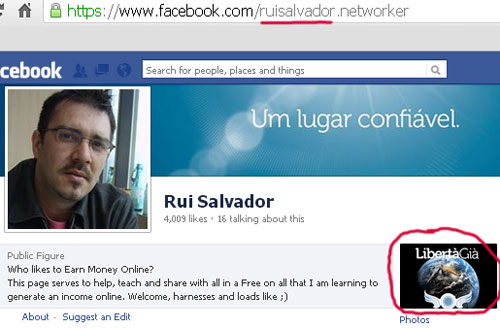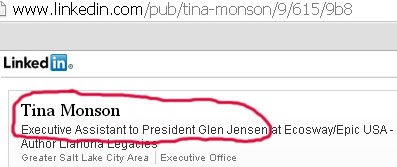SEC reiterate need for retail sales in MLM

As part of my writing here at BehindMLM I find myself sifting through mountains of MLM related information on a daily basis. One topic I find that pops up on a consistent basis is the debate over the importance (or lack thereof) of retail sales by an MLM company.
By using the term “retail sales” in MLM one is of course referring to sales of a product or service (not a third-party offering) by an MLM company to non-affiliates. Non-affiliates can be referred to as non-participants or any other name that denotes them as not participating in the compensation plan and earn commissions.
Some MLM companies attempt to muddy the clear definition of a retail customer by claiming that affiliates who do not recruit are retail customers. It is important to note that the failure to recruit new affiliates does not preclude an affiliate from generating commissions (typically by selling the company’s products), and as such they simply cannot be defined as retail customers (who simply cannot generate commissions no matter what they do or don’t do).
Here at BehindMLM it’s no secret the vital important I place on retail sales in my company reviews. The existence of retail sales and its viability is one of the key indicators I use in my analysis of an MLM company’s compensation plan and business model.
Adopting a common-sense approach to retail sales in MLM, I use a benchmark of around 50%, figuring that if a company can demonstrate that at least 50% of its revenue is from retail sales then they’re well-clear of being a pyramid scheme.
I mean, selling products to retail customers is what MLM is supposed to be about right? So is expecting a company to be at least 50% engaged in this unreasonable?
According to some MLM proponents, very much so.
One common assertion I see used time and time again is the insistence that US regulators do not care if products are being sold to retail customers or affiliates.
‘A product sale is a product sale and so long it is being purchased on the merit of the value of the product itself and not just to generate commissions‘, or some derivative is the common reasoning used.
The problem with that is of course that you then wind up companies operating in a loophole, ignoring retail altogether and focusing on generating recruitment commissions via product sales, with an inflation in product cost masking what would otherwise be a blatant recruitment incentive.
That however is conveniently ignored.
‘So long as a company is generating revenue via product sales, who cares whether customers or affiliates or retail non-paricipants?‘
Anyone who gives a damn about pyramid schemes operating in the MLM space should care.
If there’s no noticeable difference between a pyramid scheme set up to mask recruitment commissions paid out of inflated product prices, and an MLM company that professes legitimacy despite a lack of retail because commissions are generated via product sales – then the MLM industry has a huge problem.
But hey, that’s just me with my common-sense. I don’t have a sob story to tell you… there’s no rags to riches “I lived in a van in Hawaii for a decade eating my own shit to get by” backstory to BehindMLM. I’m just a guy with a keyboard trying to make sense of an industry that is notoriously treacherous to wade through, for the uninformed and informed alike.
The hell do I know about pyramid schemes? [Continue reading…]
LibertaGia Review: Cloud storage & recruitment
![]()
There is no information on the LibertaGia website indicating who owns or runs the business, with the company only providing the following vague marketing spiel:
LibertàGià is a technology company working internationally which main goal is to develop apps that will solve common problems in people’s lives.
The LibertaGia website domain was registered on the 19th of July, however the domain registration is set to private.
A corporate address in the Portuguese city of Lisbon (Lisboa) is provided on the LibertaGia website, possibly indicating that the company is being run out of Portugal.
Despite the lack of disclosure on the LibertaGia website, further research into the company revealed affiliates naming a “Rui Salvador” as the company’s CEO and founder.
This information appears to be confirmed by visiting Salvador’s Facebook profile, which is full of LibertaGia marketing material:

Possibly attributable to language barriers, I was unable to find any information on Salvadaor’s past MLM ventures.
Read on for a full review of the LibertaGia MLM business opportunity. [Continue reading…]
Epic Review: eCosway reboot US market?

Epic launched in October of 2013 and is headed up by CEO Glen Jensen.
No corporate address or company information is currently present on the Epic website, however the company’s website domain registration provides a Utah based address in the US.
A “Tina Monson” is provided as the Epic domain owner (“epicera.com”), who credits herself as Glen Jensen’s “executive assistant” in her LinkedIn profile:


Glen Jensen (right) first popped up on my radar as the replacement CEO of Go Fun Rewards, after Randal Williams bailed from the company to go and start JubiRev.
Around a month after accepting the CEO position at GoFunRewards, Jensen resigned from the post. To the best of my knowledge no official reason has ever been made public for Jensen’s abrupt departure.
Jensen was however named by Randal Williams in a lawsuit filed against GoFunReward’s parent company, eAdGear. In his complaint, Williams accused Jensen of
creating revenue positions in the compensation structure of GoFun Places for (his) family members.
After Jensen left the company, GoFunRewards floundered before eventually ceasing operations in the US altogether. This was done under the premise of receiving legal advice concerning GoFunRewards’ business model and compensation plan (indicating that it was a Ponzi scheme).
In addition to Jensen’s involvement in GoFunRewards, he’s also launched Agel Enterprises and Uprize. For a more detailed look at Jensen’s MLM history, see the GoFunRewards BehindMLM review.
Otherwise, read on for a full review of the Epic MLM business opportunity. [Continue reading…]
Penny Auction Profit Review: $25 ad pack scheme

There is no information on the Penny Auction Profit website indicating who owns or runs the business. The company does however claim to be based out of the Cayman Islands (a known tax haven):
Our firm consists of a team of individuals, well established in the Cayman Islands, with different backgrounds in term of nationality and work experience.
The Penny Auction Profit website domain (“pennyauctionprofit.com”) was registered on the 16th of July 2013, however the domain registration is set to private.
As always, if an MLM company is not openly upfront about who is running or owns it, think long and hard about joining and/or handing over any money. [Continue reading…]
Xango Review: Mangosteen juice & autoship concerns
![]()
Xango launched in 2002, making it eleven years old at the time of this review. The company is based out of the US state of Utah, and operates in the health and nutrition MLM niche.
On their company website, Xango list five founders: Gary Hollister, Aaron Garrity, Joe Morton, Gorden Morton and Kent Wood.
Gary Hollister served as the original CEO of Xango between 2002 and to 2006 and appears to have begun his involvement in the MLM industry after being appointed CEO of Enrich International (now Unicity International) in 1997.
Aaron Garrity, Joe and Gordon Morton were also in Enrich International during the time Hollister served as CEO, and is where the business relationship formed between the group that would later result in the launch of Xango.

Today Aaron Garrity (above, being held bythe rest of Xango’s original co-founders) serves as Xango’s CEO, Chairman and President.
Having been around for just over a decade, Xango has courted its fair share of MLM controversy and drama.
In 2003 Xango was sued by Tahiti Noni International (now Morinda). Tahiti Noni International alleged ‘that Xango executives stole TNI’s concept for a mangosteen-based supplement while they were employed by TNI’s parent-company‘.
Xango counter-sued and both cases wound up being settled out of court. Details of the settlement were not made public.
Xango primarily market a mangosteen-based juice, with the company’s affiliates landing Xango in hot water with the FDA in 2006.
Xango’s affiliates
used marketing materials to promote mangosteen juice claiming more than 20 human health benefits, including “anti-inflammatory,” “anti-microbial,” “anti-fungal,” “anti-viral,” “anti-cancer,” “anti-ulcer,” “anti-hepatotoxic,” “anti-rhinoviral,” and “anti-allergic” effects.
In 2007 Xango was sued by Angel Investors LLC who at the time held a roughly 1% stake in the company. Angel Investors LLC accused Xango management of
corporate looting and mismanagement of millions of dollars by the company’s founders for their personal expenses including luxury cars and performance-enhancing medical treatments.
XanGo’s founders took millions of dollars in personal loans from the company and paid themselves excessive salaries while wasting corporate assets.
The group cited such expenditures as $6,000 monthly auto allowances, family vacations and, in one case, $20,000 worth of home furnishings.
The suit was initially dismissed by a 4th District Court but then overturned in 2009 by the Utah Supreme Court. Rather than take the case to trial however, Xango settled with Angel Investors ‘for an undisclosed amount of money‘. Once again the exact terms of the settlement were not publicly disclosed.
More recently, in May of this year Xango’s sixth founder Bryan Davis (not credited on the Xango website) filed suit against the company,
accusing his partners of spying, threatening employees, falsifying distributor positions to siphon off funds, defrauding on XanGo taxes and their personal taxes, falsifying records, changing credit card statements, charging as business expenses to purchase grand pianos, vacations, home renovations, landscaping, electronics, expensive bicycles, scooters, and for CEO Aaron Garrity, an open expense account for one mistress.
According to the lawsuit, Garrity embezzled hundreds of thousands of dollars in assets from the company, writing off clothing, medical enhancements, jewelry, event tickets, bicycles, electronics and chartered planes and vacations as business expenses.
CFO Nate Brown set up secret founder accounts for Garrity and others to allow them to improperly spend XanGo assets.
Davis also alleges in the lawsuit that Garrity’s assistant, Andrea Waterfall, with whom he was in a relationship, had a company credit card that she used for personal expenses, and that Garrity sent in fraudulent expense reports.
Other allegations include Garrity using power and influence as a founder to threaten XanGo employees into turning a blind eye to his theft and instituting what he termed a “culture of giving” at XanGo meaning that founders and employees Garrity determined were in his good graces could unlimitedly use XanGo assets for their personal benefit.
The lawsuit further reports founders are alleged to have used XanGo employment and forced qualified distributor positions to siphon XanGo assets to family members and friends.
Davis alleges the founders conspired to give themselves illicit distributions through a tax fraud scheme and that the founders also formed various competing companies with XanGo assets.
He is also claiming that the founders took steps to freeze him out of the company — ignoring Davis’ objections to wrongful conduct, falsifying board minutes to reflect unanimous consent to actions to which he had voiced objections, XanGo employees were told not to talk to Davis under penalty of termination, that founders also falsely claimed to XanGo employees that he had resigned his position at XanGo and disparaged him.
As a result, Davis said XanGo withheld bonus/distribution payments to Davis as well as discontinuing employee benefits.
The lawsuit further states that Garrity has also misused XanGo’s security department to retaliate against Davis, Angel, leaders and founders of competing MLMs and XanGo distributors and employee, according to the suit; Garrity allegedly asked Justin Barrett to use his access to law enforcement databases to find information on these individuals that was not on public record, which information Garrity could then use to his advantage.
He also requested that the XanGo Security Department obtain non-traceable wireless accounts for him for the purpose of online corporate intelligence gathering, dissemination of information and posting defamatory comments about competitors, distributors, employees and others.
A bogus account was illegally created under the fictitious name “John Gable.”
Xango initially responded to Davis’ lawsuit by claiming ‘the accusations are fabricated because Davis is attempting to extract an inflated buyout from them for his shares in the company‘.
This refute was then backed by the filing of a lawsuit against Davis of their own, in which the company claims ‘Davis was negligent in his duties‘.
As at the time of publication the resolution of both lawsuits is pending.
Just before launching their new venture Xalo, Xango also axed 20 percent of its global workforce.
Dave Webb, XanGo’s vice president of communications, said the cuts were not “performance-based,” but rather strategically motivated.
The company is looking for “the best return on investments and allocation of resources” to help it prosper over the long haul, he said.
Xalo launched in October of 2013 as a separate division of Xango, complete with its own company name and compensation plan.
For the purpose of this review I’ve only touched briefly on the history of the company, for a more detailed history of Xango readers are encouraged to read up on Wikipedia’s Xango entry.
Read on for a full review of the Xango MLM business opportunity. [Continue reading…]
Vicesus confirm MLM penny auction niche is dead

Vicesus was announced in the months following the Zeek Rewards Ponzi collapse and sought to capitalize on the momentum behind the MLM penny auction niche at the time.
I first reviewed Vicesus back in January of 2013 and identified a core issue of the company’s revenue sharing model. Despite having a retail bid offering, the affiliate-funded Ponzi points component of the Vicesus compensation plan was clearly aimed at targeting ex- Zeek Rewards affiliates looking for a “reload”.
Despite the compensation plan being released in January, turns out that Vicesus was nowhere near ready to launch. Infact it wasn’t until the end of August, seven months later, that Vicesus officially opened its doors.
And now, not even two months later, they’ve gone and closed them again. [Continue reading…]
Herbalife pyramid scheme case to go to trial

Barring any unforeseen events, it the next chapter in the Herbalife pyramid scheme saga will take place in a US Federal court.
Back in April Dana Bostick filed a lawsuit against Herbalife, ‘accusing the company of being an “inherently fraudulent pyramid scheme.”‘ Bostick’s 68 page complaint was filed under Federal corruption and racketeering laws.
Bostick, who became a distributor in April 2012, is suing Herbalife under California’s “endless chain” law that prohibits pyramid schemes, as well as under federal racketeering laws, which allow for triple damages.
Bostick, a 68-year-old retired general contractor, claims he failed to make money because “he was doomed from the start by an Herbalife marketing plan that systematically rewards recruiting over retail sales.”
The company makes “outlandish statements” about potential earnings, but the marketing plan, he charges, “pays millions to those few at the top at the expense of many at the bottom.”
Bostick said he bought and used Herbalife products, set up three websites and paid for coaching sessions where he was taught how to recruit others.
But “the only recruit he made was a long-time friend.” He spent $3,000 in products not consumed by himself or given to family, he claimed.
Bostick’s lawyer, Philip Dracht, said Bostick spent thousands of dollars to purchase Herbalife products but failed to earn much money by selling them. “The retail profits are not there because of all this discounting,” Dracht said.
He added that Bostick was urged by other Herbalife distributors to spend more money to buy leads that would help him earn more money but that he could not afford it.
The suit, which also seeks class-action status, claims around 88 percent of Herbalife’s 500,000 US distributors do not make any money.
Sounds to me like your typical case of self-qualification via purchases, which is evidently rampant in Herbalife affiliate circles and somewhat of an open secret in the MLM industry.
Whereas Herbalife has quietly settled such lawsuits in the past with payoffs, this time around, no doubt due to the increased public scrutiny over Herbalife’s business model, they’ve decided to fight the case.
That resulted in the filing of a motion for dismissal by Herbalife, which was subsequently denied last Tuesday. [Continue reading…]
Better Living Global Marketing bid inflation woes

One of the problems with the Ponzi points MLM business model Zeek Rewards pioneered is that, when combined with a penny auction front, sooner or later affiliates wind up re-investing in an extraordinary amount of bids.
Due to the expiring nature of the Ponzi points model, this re-invest in bids is a daily occurrence, resulting in a huge amount of bid saturation on the penny auction front-end.
With affiliates having to dump bids on customer accounts to generate Ponzi points (usually accounts they’ve created themselves or paid someone else to create), typically after they’ve been dumped the bids sit doing nothing.
As evidenced in Zeek Rewards, most affiliate investors find it too time consuming to waste time in the auctions. Some affiliates however, usually in an attempt to maximise their ROI via the winning of an auction here and there and cashing out the prize, do use the bids they’ve dumped.
Over time enough affiliates wind up engaging in the auctions that every auction simply winds up flooded with an excessive amount of used bids.
Why is this important?
Ponzi points fuelled penny auctions already suffer from a low amount of retail activity. In Zeek Rewards this was less than 2% of of the total revenue generated by the company.
The facade of retail activity in Ponzi points penny auctions is important, as it allows the company to continue to attract new investors on a platform of supposed legitimacy.
How do penny auctions attract new non-affiliates? By promoting the ease with which it’s possible to win items in their penny auction front, at substantially less than retail prices.
Bit hard to do that when your affiliate investors are swamping every auction with near infinite amounts of Ponzi points bids.
What inevitably winds up happening is retail dies off completely (nobody wants to spend money on practically unwinnable auctions), and affiliates just wind up bidding each auction into oblivion. Auctions wind up being won on a game of patience rather than cost analysis of bids used to win an auction vs. the cost of the auction itself.
Just before Zeek Rewards’ revenue was about to go negative and the SEC shut them down, bid inflation occuring in Zeek Rewards’ Zeekler auction was readily observed.
Now, not surprisingly given Better Living’s near identical penny auction Ponzi points business model , Better Living Global Marketing appear to be heading down the same path as Zeek. [Continue reading…]
VizConnect Review: QR codes and video hosting
![]()
VizConnect launched in mid 2013 and operate within the mobile niche of the MLM industry.
No corporate address is provided on the VizConnect website, however the company’s website domain (“vizconnect.com”) provides an address in the US state of Massachusetts.
VizConnect also make reference to Massachusetts in their Terms and Conditions:
GOVERNING LAW, JURISDICTION AND VENUE
This Agreement and access to the Website shall be governed by and construed in accordance with the law of the Commonwealth of Massachusetts, exclusive of its choice of law rules and matters affecting copyrights, trademarks and patents under U.S. federal law.

Heading up VizConnect is Founder Edward Carroll (right). According to Carroll’s VizConnect corporate bio,
A 20-year+ veteran of media, Mr. Carroll leverages his video and media savvy to help businesses and entrepreneurs take advantage of video and mobile marketing.
Ed launched his own production company in 2005 developing special marketing pieces for the Cape Cod Chamber of Commerce and Bosse Sports Clubs as well as other web-based videos for smaller companies.
Seeing the explosive growth in mobile marketing and the need for businesses to access customers on their mobile devices, Ed was instrumental in the architecture of the Company’s software platform.
I couldn’t find any further information on Carroll’s involvement in the MLM industry prior to VizConnect, so VizConnect would appear to be his first MLM venture on the executive side of things.
Read on for a full review of the VizConnect MLM business opportunity. [Continue reading…]
WCM777 Ponzi scheme “closes” US operations

WCM777 first popped up on my radar back in June of this year. In formally reviewing and analysing the WCM777 business model and compensation plan, I discovered the company offered affiliates 100 day ROIs over five investment levels.
With invested affiliate funds the only source of revenue on the MLM side of the business, quite obviously WCM777 was operating as a Ponzi scheme.
Based out of Hong Kong and officially registered in the British Virgin Islands, a known tax-haven, WCM777 expanded operations into the US around the same time I initially reviewed the opportunity.
On Monday the 17th of June WCM777 held a “grand opening” at the Pacific Palms Hotel in Los Angeles, California. On their website WCM777 claim that over 500 affiliate investors attended the event, with twenty of them being given awards for their financial contribution and recruitment of new affiliate investors into the scheme.
The company also claimed to have ‘received great support from the California government‘, accepting a “Certificate of Recognition” from the City of Walnut.
Fast forward five months and WCM777’s offices have been abruptly shutdown, with rumours emerging that suggest an FBI investigation was behind the decision.
While I personally can’t confirm the existence of an FBI investigation into WCM777 at this time, what I can confirm is that last week the company did indeed decide to suddenly abandon its US operations and retreat back to Hong Kong. [Continue reading…]

